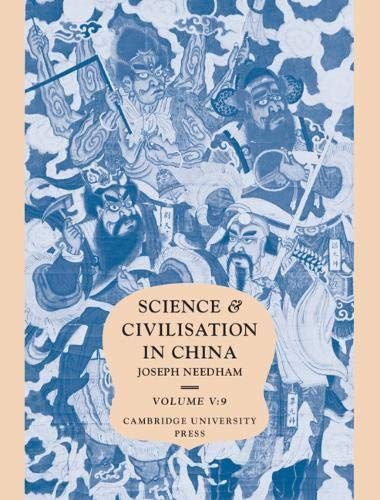
Science and Civilisation in China: Volume 5, Chemistry and Chemical Technology, Part 9, Textile Technology: Spinning and Reeling
This study, the first of two parts, gives a comprehensive account of Chinese textiles and textile technology and deals with the evolution of bast fibre spinning and silk-reeling in the history of China. These operations are the basic techniques in the production of yarn and thread, pre-requisite to weaving, and any study of Chinese textile technology must start with the raw material obtained from fibre plants such as hemp, ramie, jute, cotton, etc, and silk reeled off from cocoons of the domestic silkworm. The time-span covered runs from the neolithic to the nineteenth century. Archaeological and pictoral evidence, the bulk of it hitherto unpublished in the West, is brought together with Chinese textual sources (which are extensively translated and interpreted) to illustrate Chinese achievements in this field. Professor Kuhn's study reveals the way in which Chinese textile-technological inventiveness has influenced textile production in other regions of the world and in medieval Europe. It explains how textile technology reached its high point between the tenth and thirteenth centuries and attempts to indicate the reasons for its subsequent relative decline. The development of the textile industry in Europe was a key factor in the rise of capitalism. In the case of China after Sung times, textile technology and the organisation of textile labour may help indicate why such a development did not take place in China.